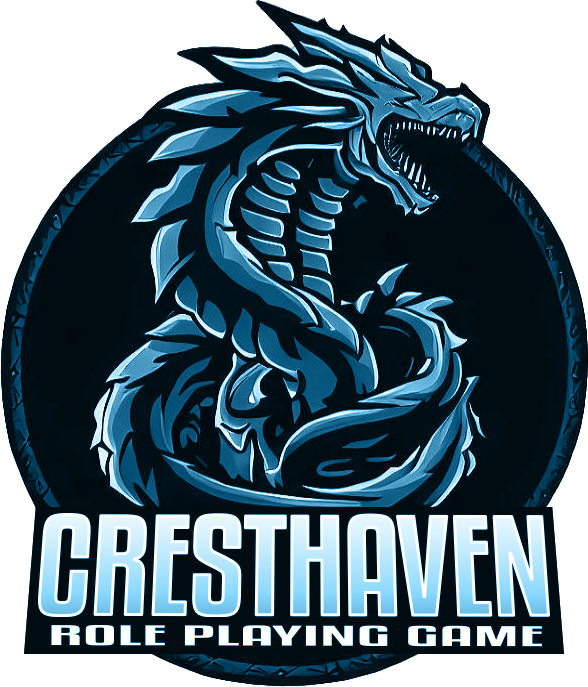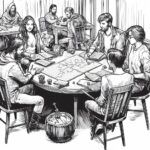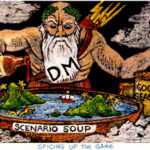As the Dungeon Master (DM), it is your job to keep track of time in the game. Time can affect resources, cause random attacks, and events to pass. You can choose a player to keep track of time or use the time tracking sheet provided on this website.
Learn how In Game Time works here!
Understanding Time in the Game
In the game, doing activities takes time. However, while time passes, the world does not stand still. You can read up on time in the game on this website. After understanding how time works, it is up to you to assign values of time as the party progresses, describe what happens when resources are used up, and add complexity to your games using time.
For example: If the party is exploring a deep underground complex and is almost out of torches, what is the plan to find their way out without light?
Adding Complications
To add tension and excitement to the game, you can use the Tension Pool from The Angry DM.
The Tension Pool represents inefficiency. It represents the fact that time – and actions – are always a limited resource and if you don’t respect their value and think carefully and act efficiently, your life is going to suck. – The Angry DM
The Tension Pool represents inefficiency and limited resources. For each turn that passes, add one d6 to the dice pool. At the end of the 6th turn, roll all the dice in the pool and consult the Complications Table for the result. The Complications Table should be kept privately by the DM. After rolling the Tension Pool, you’ll often introduce a Complication in the adventure.
Optional Rules for adding Tension
- Whenever a player commits to a Time-Consuming action, Add a Tension Die.
- Whenever a player commits to a Reckless action, Roll the Tension Pool.
- Whenever a player commits to an action that’s both Time-Consuming and Reckless, first Add a Tension Die and then Roll the Tension Pool.
- Whenever you add the sixth Tension Die to the Tension Pool, Clear the Tension Pool.
Complications List
The Complications List is only a sample, and you can create your own list that matches your adventure. If you are in a dungeon, then the complications should be dungeon-related. If you are in a city, then they should be city-related. You can also have a list of fun ways to kill players, but it is not required to roll on the list. You can always pick or slot in something else of your choosing. Finally, you can add as many complications as you want. You can have 36 different options, or if you have more dice, even more!
Sample Dungeon Complications
| 6d6 | Result |
|---|---|
| 24 or less | Nothing Happens |
| 25-30 | Random Monster Encounter |
| 31 | Equipment failure (backpack, torch gets blown out, sack of gold springs a leak, etc) |
| 32 | A strange smell fills the air |
| 33 | NPC Party: Adventurers (encounter) |
| 34 | NPC Party: Bandits (encounter) |
| 35 | Unstable Dungeon – random area collapses. Maybe it’s just a bang echoing in or a cloud of dust filling the area. |
| 36 | Gelatinous Cube Cleaning |
Sample City Complications
| 6d6 | Result |
|---|---|
| 24 or less | Nothing Happens |
| 25-30 | Random Monster Encounter |
| 31 | Guards/Militia to arrest a player |
| 32-33 | Pick Pocketed! Random item lost |
| 34 | Missionaries Aggressively Recruiting |
| 35-36 | Unfriendly Townsfolk w/ Pitch Forks |
Random Encounters: Level 1 Monsters
| d10 | Monster |
|---|---|
| 1 | Bee, Giant |
| 2 | Goblin |
| 3 | Green Slime* |
| 4 | Kobold |
| 5 | Skeleton |
| 6 | Snake, Cobra |
| 7 | Spider, Giant Crab |
| 8 | Stirge |
| 9 | Wolf |
| 10 | Orcs |
Random Forest Encounters
| d20 | Monster |
| 1 | Bandits |
| 2 | Blights |
| 3 | Dragon, Green |
| 4 | Druid |
| 5 | Dryad |
| 6 | Faeries |
| 7 | Gnomes |
| 8 | Goblins |
| 9 | Lion, Panther or Tiger |
| 10 | Mole |
| 11 | Moose |
| 12 | Owlbear |
| 13 | Shambling mound |
| 14 | Spider, Giant |
| 15 | Treants |
| 16 | Troglodytes |
| 17 | Trolls |
| 18 | Wasps/flies |
| 19 | Will-o’-wisp |
| 20 | Wolves |





